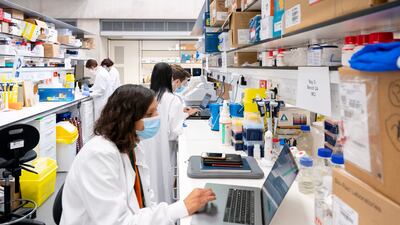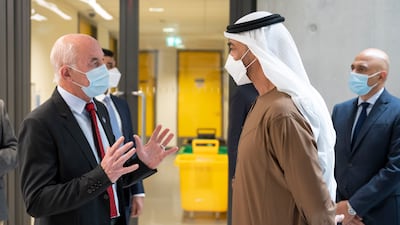Immune cells can now be engineered to carry out increasingly targeted attacks on leukaemia, scientists have revealed.
Researchers based at the UAE-backed Zayed Centre for Research into Rare Disease in Children in London have shared how advances in gene-editing are offering hope to leukaemia patients. Pioneering work at the facility also includes advances in early genetic analysis that is making a "big difference" in outcomes for epilepsy sufferers.
Waseem Qasim, professor of cell and gene therapy at the Institute of Child Health and Great Ormond Street Hospital, said: "We can now engineer immune cells to attack leukaemia more specifically.
"We can collect cells from the patient or a healthy donor, take them to a laboratory, pick out the immune cells and as various bits of technology have merged — or converged — it is now possible to reprogramme those cells and introduce new genes into them to give them new properties.
“We are trying to rearm these cells and give them receptors on their surface, which can pick out — very specifically — target cells that they recognise as being dangerous or abnormal.”
Leukaemia is not the only rare pathology where a focus on genetics is paying dividends. Research indicates those with early onset epilepsy will have their outcomes improved by shifting away from the treatment of the disease and its symptoms towards a focus on its underlying genetic abnormalities.
Dr Amy McTague, clinical consultant academic and principal research fellow at UCL GOS Institute of Child Health, said her team is focused on rapid testing for babies and their parents, which has had “real impacts for families”.
“Doing [the research project] internationally has been very exciting — and quite challenging as well," she said.
"We’re hoping to show that, even across different healthcare systems, having the diagnosis earlier in the patient journey can make a big difference to the patient and parents’ experience as well as the management of the epilepsy."
Dr McTague shares the excitement around tailored treatments that address genetic abnormalities rather than treating the seizures or movement disorder.
Early diagnosis means patients can be moved into the appropriate pathway for a tailored treatment more quickly, which can maximise the outcomes and life chances of children.













